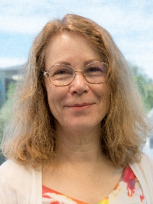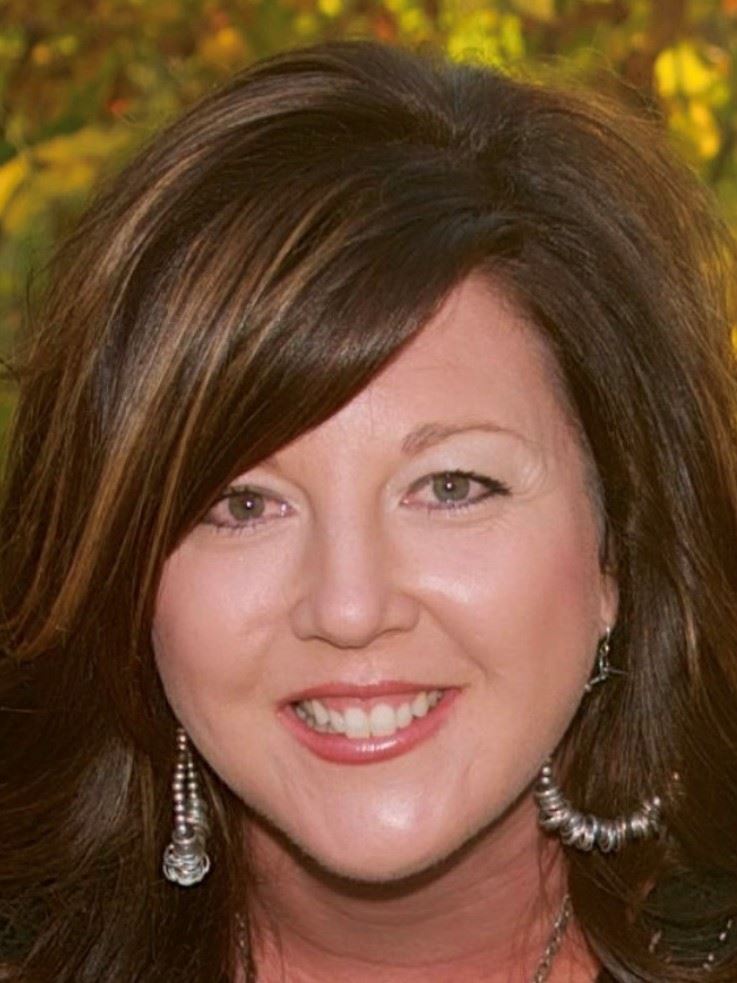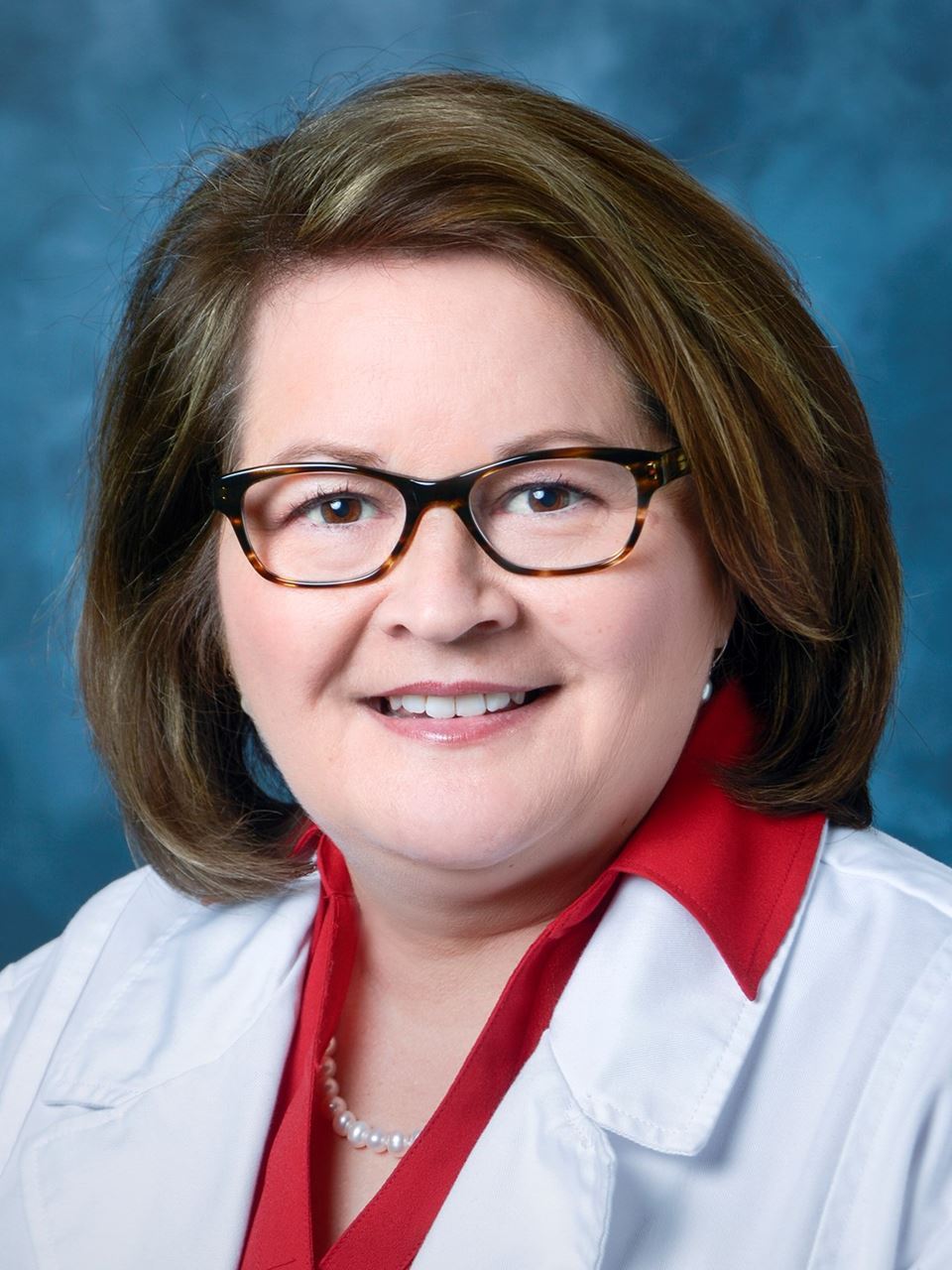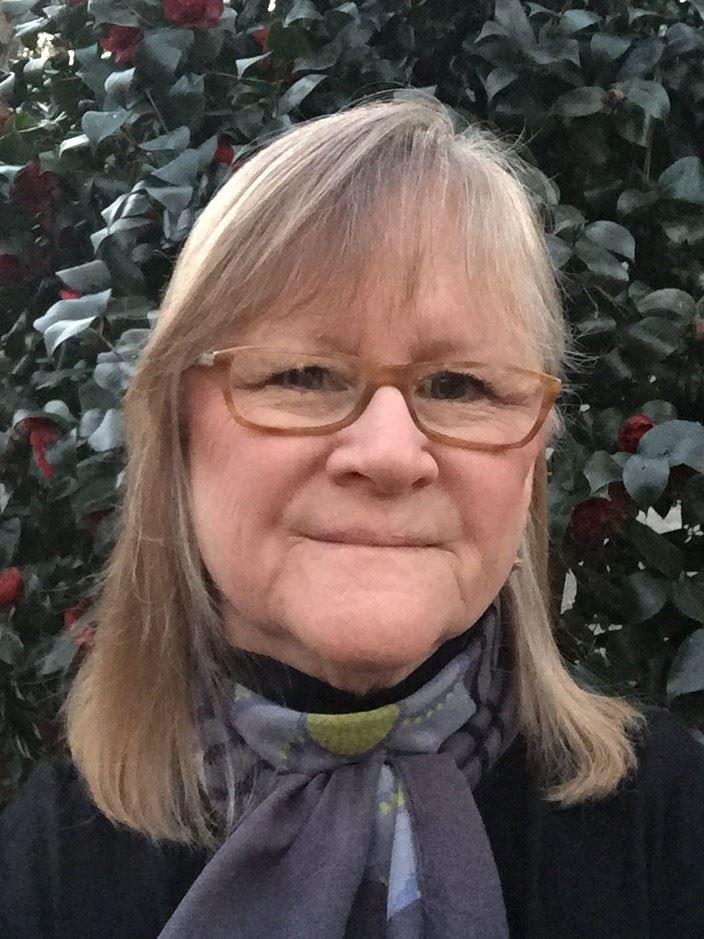LOGIN |
meet our members
Susan W. Wesmiller, PhD, RN, FAAN Sue is an Associate Professor of Nursing at the University of Pittsburgh (Pitt) and an accomplished nurse scientist in the field of genetic and genomic markers of symptoms in individuals with breast cancer. Even in high school, Sue knew nursing was her destiny (after her father convinced her that majoring in history would limit her career possibilities, of course!). She graduated from Pitt with her BSN in1977 and worked as a staff nurse and then a head nurse at a hospital in Dubois, Pennsylvania. After convincing her husband to move back to Pittsburgh, she returned to her alma mater to earn her MSN in 1983 as a pulmonary clinical nurse specialist. During this time, Sue was introduced to research, working as the program director for two NIH-funded studies, later returning to service as the Director of Nursing Education and Research at UPMC Presbyterian, a position she held for 15 years. After Sue’s children graduated from college, she returned to Pitt to obtain her PhD. Of this experience, Sue says “My first course was a research practicum with Dr. Richard Henker who was studying the genetics of postoperative pain and sedation. Because my master’s thesis was in postoperative pain in patients following a thoracotomy for lung cancer, I thought I wanted to stay in that space. What I didn’t know is that Dr. Henker – who worked closely with Dr. Yvette Conley – would introduce me to genetics! I had never taken a genetics course!” During that time, while collecting data for Dr. Henker in the post anesthesia care unit, Sue noticed that while pain was generally well-controlled in the patients, there was less concern about postoperative nausea and vomiting, which ultimately became the focus of her dissertation. Sue’s postdoctoral studies with Dr. Catherine Bender continued to focus on the genetic underpinnings of postoperative nausea and vomiting, though her interests pivoted to study individuals with breast cancer post-surgical intervention. Today, Sue is continuing to build upon her past research with the support of R01-level funding from the National Institution of Nursing Research! Beyond her research, Sue continues to be very passionate about genomic education for nurses, teaching genetics at both the BSN and DNP level at Pitt. Like so many of us at Pitt, Sue’s involvement in ISONG is owed to Dr. Yvette Conley. Sue describes feeling “at home” during her first ISONG conference, later becoming very active after participating in the Summer Genetics Institute (during which she sat with current ISONG board members Dr. Ansley Stanfill and Dr. Becky Kronk). When asked what she wishes others knew about ISONG, Sue says “The members of ISONG may be small in numbers, but they are huge in terms of international influence for nursing genomic education, research and clinical practice.” As far as her plans for the future of ISONG as our incoming President, Sue says “Dr. Dennis Cheek and Dr. Becky Kronk have been marvelous leaders and have moved ISONG forward. I want to continue their work and complete the plans from the 2019 Strategic Plan. I am thrilled that we have such strong committees, and I look forward to helping them grow even stronger! I aim to further increase inclusivity and investigate why some former members who are still active in the genomics nursing world have not remained as active members. I am hopeful for a bright future and looking forward to my tenure as ISONG President!” Among her many recent accomplishments, Sue was inducted as a Fellow in the American Academy of Nursing in October! When asked what someone might be surprised to know about her, Sue says “My husband and I were engaged at Pitt stadium during a Pitt football game, and in the past 40 plus years have rarely missed a football or basketball game!” Of the future, Sue says “I love what I do, and I hope to be able to teach genomics and continue with my program of research for at least five more years. Then I think it will be time to hit the beach – at least during the winter months!” _____________________________________________________________________________________________
Cheedy Jaja, PhD Cheedy Jaja, PhD, has joined the College of Nursing as an associate professor and assistant dean for Global Engagement. Dr. Jaja has more than two decades of experience teaching across nursing, social sciences, arts and humanities. His teaching approach utilizes traditional and innovative pedagogical techniques that stimulate critical thinking, creativity, and reflection. He encourages his students to tap into their collective knowledge base, expose biases and strive for convergence on views, values, ideals, issues, and perspectives relevant to the course. Dr. Jaja's own education includes graduate degrees in community health nursing and public health genetics from the University of Washington; philosophy and political science Master of Arts degrees from Bowling Green State University; and a PhD in public administration and policy from Florida Atlantic University. He was the inaugural Pharmacogenetics, Ethics, and Public Policy Postdoctoral Fellow at Indiana University, where he also received his Master of Science in psychiatric and mental health nursing degree. Dr. Jaja received a Fulbright Scholar award from the U.S. State Department, among other honors. He is also a board-certified Psychiatric and Mental Health Nurse Practitioner. Dr. Jaja's research interests are sickle cell disease analgesic pharmacogenetics and health disparities. During the Ebola Virus Disease epidemic in 2014-2015, he served two tours of duty in Sierra Leone with the humanitarian organization, Partners in Health. In Sierra Leone, he was instrumental in establishing a pediatric sickle cell disease clinic. His continued interest in social justice, health disparities and improving health outcomes in historically marginalized and vulnerable populations, such as those with sickle cell disease, drives his research, clinical and advocacy initiatives. ________________________________________________________________________________________________________ Professor Sivia Barnoy Professor Sivia Barnoy is based at the Nursing Department in Tel-Aviv University in Israel. Sivia fell in love with the nursing profession after spending two years in the Israeli National Service working in hospitals. She enrolled in nursing studies at the Hebrew University of Jerusalem and began her nursing career as a pediatric intensive care nurse. After completing a Master’s degree in genetics, Sivia was invited to continue her studies at the doctorate level; she considered this option for two years before she agreed to it, as leaving the patient's bedside was a difficult decision for her. After completing her Doctoral degree she applied to the Department of Nursing at Tel Aviv University to teach genetics. In 2004 she was appointed as a lecturer in the senior faculty of the department and, as a result of her long-term commitment and dedication to nursing education and research, Sivia is now a full professor at the nursing department of Tel-Aviv University. ________________________________________________________________________________________________________
Sheila A. Alexander, PhD, RN, FCCM Dr. Sheila A. Alexander, PhD, RN, FCCM, is an Associate Professor of Nursing at the University of Pittsburgh and an accomplished nurse scientist in the field of genetic and genomic markers of acute brain injury and illness. Sheila’s career was always destined for nursing. Early on, she obtained substantial bedside experience on the floor, in the ICU, and even in inpatient geriatric behavioral health. This work eventually led her to pursue her MSN/NP credentials at which point she completed a research practicum that proved to be a turning point in her career, as she realized with certainty she needed to change course to the PhD track. She worked as a research project director while completing her PhD and then entered into a faculty position. Sheila uses omic-based approaches as the foundation of her research exploring variability in recovery from brain injury and illness. She also teaches genomics in her graduate pathophysiology course and guest lectures on the topic within and outside of the School of Nursing. Sheila has always carried a particular interest for genetics. For example, in the tenth grade, she made a DNA model out of jelly candies (which is something this author advocates we all should do)! As a clinician, she continued to wonder why two patients with the same age, sex, and injury pattern/severity could have such different outcomes. During her graduate student research practicum, she became quite certain there was a genetic component to these observations, which in turn formed the foundation for her research career. Along with the research practicum discussed above, Sheila is grateful for the National Institute of Nursing Research Summer Genetics Institute which provided an incredible bridge into genomic research and introduced her to ISONG. As a PhD student, Sheila found herself repeatedly answering the question ‘Should nurses really be studying genetics?’ Sheila says that ISONG was a place where everyone knew the answer was ‘YES!’. Sheila has been an active member of ISONG ever since, including her tenure in leadership roles such as our 2015-2016 ISONG President. When asked what someone might be surprised to know about her, Sheila says “I’m an introvert – I fake being an extrovert.” In addition to her growing record of external research funding, Sheila’s recent accolades include being (1) selected as Chair-elect of The Discovery Network Society of Critical Care Medicine; (2) elected council person for the Society of Critical Care Medicine; (3) named as an editorial board member of Critical Care Explorations,Biological Research for Nursing, and (in April of 2021) Journal of Neuroscience Nursing; and (4) invited to be a member of the Biomarker Workgroup for the Curing Coma Campaign sponsored by the National Institute of Neurologic Disorders and Stroke and Neurocritical Care Society. In the future, Sheila plans to keep moving forward with her work to increase omic data use in the critical care arena through a nursing perspective. Finally, when asked about ISONG, Sheila tells us, “I love ISONG and think it needs to be more visible to the rest of the world, particularly the scientific healthcare community. There is such amazing work happening here, and ISONG has provided funding to launch some incredible careers and developed excellent educational products. ISONG members are supportive and encouraging of all ways of nursing and educating the nursing community on genetic/genomic concepts.” She ends with, “Nurses are smart scientists that translate knowledge to help people navigate life. ISONG is a place where every nurse belongs. It doesn’t matter if you’re in practice, doing research in the lab or a clinical setting, or educating students or laymen, there is a seat for you within ISONG.” _____________________________________________________________________________________________
Mike is an Associate Professor of Nursing at Shepherd University, a small liberal arts university in the eastern panhandle of West Virginia. Mike has undergraduate and doctoral degrees in nursing, a master’s degree in healthcare administration, and a graduate certificate in bioethics and health policy. Through the course of his career, Mike has had three main areas of focus. Mike first started in clinical practice in emergency departments and a major trauma center. He then worked for 20 years in a variety of consulting and leadership roles including manager, director, and chief nursing officer, as well as a management consultant. He has spent the last nine years in his current role in academia. As an educator, Mike teaches genetics courses at the baccalaureate and doctoral levels. In both his undergraduate and Family Nurse Practitioner courses, Mike emphasizes the importance of nurses understanding how to apply genetic and genomic knowledge in clinical settings. His curricula includes substantial integration of bioethical content. Of genomic education for nursing students, Mike says: “Genomic education is vital in nursing programs. Genetics and genomics will be how we assess and treat disease and how we understand who we are and how we are all related. If we fail to provide our nursing students with a basic understanding of this science and technology, we will have failed to prepare them for 21st century nursing.” In preparing to teach an undergraduate course in genetics and ethics, Mike attended the 2013 Summer Genetics Institute (SGI) at the National Institute for Nursing Research. At SGI, he was introduced to ISONG and has been a member ever since. As co-chair of the 2020 ISONG Congress Planning Committee, Mike, along with co-chair Lynette Howington, committee members, and the team at Kassalen Meetings & Events, faced the challenge of pivoting to a virtual conference in response to the COVID-19 pandemic. Of the experience, Mike says: “Planning the 2020 Congress in a virtual platform was one of the most gratifying professional experiences I’ve had. Not a single person suggested that we should cancel the meeting or that we wouldn’t be able to accomplish this task, despite the fact that for the most part we were creating things as we went along. It was about mid-May when we decided to move to a virtual format and I really couldn’t envision what the meeting was going to look like until mid-October. Until then we were just trusting that everything would work out. It was a tremendous group effort.” Mike sees a bright future for both nursing and ISONG. As the pandemic hit the United States in March of 2020, Mike was impressed with the responses from students whose classes were moved online and clinicals were disrupted. Of the students, Mike says: “The pandemic did not overwhelm them with fear, but with a determination to complete their program so that they could graduate and join the effort to fight the pandemic.” Of ISONG, Mike says: “I think ISONG is a collection of the most brilliant, passionate, and dedicated nurses I have ever been associated with in my career.” Mike believes that ISONG’s influence will continue to grow in the future and says: “I would like to see ISONG formalize content for a genetics/genomics curriculum at both the undergraduate and graduate level. If we want to advance nursing genetics, we must have a cadre of genetic nurse educators in addition to genetic clinicians and researchers.” __________________________________________________________________________________________________
Congratulations to Katherine Maki for her recent ISONG Research Grant Award for her research: “Cardiovascular and Gut Microbiome Response to Sleep Fragmentation in Rats." Katherine Maki is a fourth year PhD student at the University of Illinois (UIC) at Chicago. She received her Master of Science degree from the UIC and her Bachelor of Science in Nursing degree from Marquette University. She is a Jonas Veterans Health Scholar with an anticipated graduation date of December 2019. The long-term goal of Ms. Maki’s program of research is to understand mechanisms underlying cardiovascular disease in patients with disrupted sleep (from shift work, obstructive sleep apnea or other sleep disorders) to develop targeted interventions in this population. Ms. Maki was selected for the 2017 National Institute of Nursing Research’s Summer Genetic Institute and received a scholarship to attend the 2018 Summer Institutes in Statistical Genetics. Her clinical and research experiences have resulted in five publications; four of which she has been first author. As a cardiovascular nurse and electrophysiology nurse practitioner for nine years, she has extensive clinical experience with cardiac patients. Ms. Maki served as the primary investigator on a study measuring blood flow changes after cardiac catheterization through the radial artery. She is currently a research assistant in the lab of Dr. Anne Fink (UIC Lab for Sleep Neurobiology) where she works on preclinical studies examining sleep disorders and the cardiovascular system and how neuronal networks in the brain can regulate these cardiovascular processes. Ms. Maki’s dissertation will focus on cardiovascular responses to sleep disruption in a rodent model. She will focus on the gut microbiome as a potential mediator in sleep and cardiovascular pathology.
In 2017, the American Society of Human Genetics (ASHG) contacted ISONG about working on a collaborative educational project for nurses working in non-genetics specialties focused on integrating genetics and genomics into clinical practice. After considerable discussion, the decision was made to develop and present a preconference session which was accepted for the American Psychiatric Nurses Association’s annual conference. Beth Pestka, Virginia Conley and Nicole Osier from ISONG, and Karen Hansen from ASHG, prepared slides for the two-hour presentation, "Integrating Psychiatric Pharmacogenomics Into Clinical Nursing Practice," which was then presented by Beth and Virginia on October 24, 2018 in Columbus, Ohio. The session resulted in many excellent questions and feedback from the participants. As a follow-up to the live presentation, a narrated set of slides is being prepared as an educational resource for ISONG.
The Academy is currently comprised of more than 2,500 nurse leaders in education, management, practice, policy, and research. Academy fellows include hospital and government administrators, college deans, and renowned scientific researchers. The Academy fellows represent all 50 states, the District of Columbia, and 29 countries. Invitation to fellowship is more than recognition of one's accomplishments within the nursing profession. Academy fellows also have a responsibility to contribute their time and energies to the Academy, and to engage with other health leaders outside the Academy in transforming America's health system ... Click here for the complete announcement.
Eugenia Millender, PhD, RN, PMHNP-BC, CDE As one of the few indigenous Afro-Caribbean Latina doctorally prepared nurse scientist fluent in Spanish, Dr. Eugenia Millender’s career in health has been dedicated to increasing access to quality care, decreasing health and mental disparities, and providing a culturally humble environment for patients, staff, faculty, and students. Armed with deep community connections, and extensive clinical experience, she is able to not only provide quality care locally but also bridge the gap of health disparities across state and international borders. Her areas of expertise and research focus on mood disorders, stress and trauma and how they are often expressed through mental illness disparities, transgenerational genetic effects, and/or substance abuse among minority and underserved groups.
Bobbi Laing, PhD, RN Dr. Laing is a Postdoctoral Research Fellow in the School of Nursing at the University of Auckland in New Zealand (NZ) and is an emerging expert in nutrigenomics and health promotion. Dr. Laing recently completed her PhD thesis entitled ‘Key genotypes and the response to nutrient supplementation in Chron’s disease' and is the project manager for two collaborative research projects at the University of Auckland. Prior to her current position, Dr. Laing held a variety of impressive community-centered positions that have informed her goals as a nurse researcher. Dr. Laing was recruited to ISONG in 2017 by Dr. Gigi Lim. Dr. Laing is an important member of our community and very actively involved in the initiatives of the Global Membership Committee. Dr. Laing and Dr. Lim are currently collaborating to develop a research project assessing gaps in nurses’ knowledge of genomics. Their overarching goal is to develop an appropriate curriculum that can be built into the School of Nursing at the University of Auckland to enable nurses to effectively apply genomic knowledge to their clinical practice and improve patient health outcomes. Thank you, Dr. Laing, for your hard work and commitment to ISONG and the promotion of nursing science around the world.
My story begins in 1986. My mother was 31 years old. She was married with two small girls, 8 and 4 years old. She found a lump in her breast….but 31 year olds don’t get cancer. It must be benign. She was told to watch it for a few months to see if it “goes away.” Two months later she returned to her doctor and pressed for further evaluation. A mammogram lead her to biopsy where she was diagnosed with breast cancer at the age of 31. She was treated with a radical left breast mastectomy and removal of 19 lymph nodes. All nodes were negative. She came home to her young family with a scar and staples where her left breast had been. Fast forward four years, my mother, now 35 years old, has 11 and 7 year old daughters. Life is busy. She is a math teacher and volleyball coach. We live at the gym. Her teams of girls are my idols. I get off the bus every day at volleyball practice where I shag balls, toss for drills, and work on my own developing skills. Read more.
I graduated from GWU in 2010 from the Family Nurse Practitioner program. This is my third career change, or should I say transition. I was a genetic counselor for a few years before going to nursing school. After completing my BSN, I worked in hospital settings for medical/surgical, psychiatrics, and pulmonary for a few years. As soon as an opportunity availed itself, I finally came back to maternal child health. The bulk of my nursing career (15 years) was in-patient obstetrics. My long term vision had been to combine the advanced practice nursing career with the genetics component and be a nurse educator in a university hospital setting. On a personal note I was born and raised in the District of Columbia. I am married to my high school "friend" and we have four children ranging ages 25 to 15 years old. We live in the suburbs of Maryland (just minutes away from Washington, D.C). I presently work as an independent contractor in a variety of settings: ob/gyn office, urgent care, and veteran's disability claims. I graduated with my doctorate in May 2015 in Nursing Education and additionally I have completed DNP courses in the palliative care tract. I have completed courses in the nursing education tract of the George Washington University DNP program to better prepare myself with teaching methodology and design, curriculum theory, and understand adult learning theory.
Ms. Estrada is the Clinical Program Coordinator at the Saul and Joyce Brandman Breast Center at Cedars-Sinai Medical Center. She is nationally certified as a: Women's Health Care Nurse Practitioner; Certified Breast Care Nurse; and Certified Clinical Research Professional. Her current clinical care and research interests involve the screening of women who are at high risk for breast cancer and providing genetic counseling for hereditary breast and ovarian cancer. Recently, Sylvia joined the American Cancer Society San Gabriel Leadership Council which is a community-based volunteer leadership group that supports the Society’s efforts to save more lives from cancer by increasing donations, serving patients facing cancer, and promoting cancer prevention and early detection guidelines in the 47 communities that make up the San Gabriel Valley. Ms. Estrada received her nursing degree from Los Angeles County /University of Southern California (LAC/USC) School of Nursing and her Bachelor's in Nursing from California State University, Los Angeles. She earned a Master's degree in Healthcare Management from California State University, Los Angeles and a Master's degree in Nursing from California State University, Long Beach. She received her Doctorate of Nursing Practice (DNP) from Western University of Health Sciences in Pomona, California. Ms. Estrada demonstrates a strong commitment to her volunteer work both locally and internationally. She is the past President for the California Association for Nurse Practitioners (CANP) for the Greater Pasadena Chapter, Newsletter Editor and Legislative Representative for the Greater Los Angeles Oncology Nursing Society, member of the San Gabriel Valley Leadership Council for the American Cancer Society and QIC member for the Saban Community Clinic in Los Angeles. Internationally, she provides service and medical care to the underserved populations across Central American countries, travelling abroad annually to address, deliver and manage gynecological and obstetric health care needs of impoverished women.
Karlene is a Nurse/Certified Genetic Counselor at the Children's Healthcare of Atlanta and the Nell Hodgson Woodruff School of Nursing at Emory University. After completing her undergraduate programs at the School of Nursing, Medical College of Georgia, she went on to graduate school at Emory University. Karlene became interested in the field of "Genetics Nursing" during her time at Emory when she took a genetics course while completing her Master of Nursing in 1975. Since 1982, Karlene has been a certified genetic counselor and beginning in 2006 she has been the course coordinator for the genetics courses on the graduate and undergraduate levels at the Nell Hodgson Woodruff School of Nursing at Emory University. In February of 2015, she attained the Advanced Genetics Nursing, AGN-BC. In addition to these accomplishments, Karlene is an author or co-author on numerous peer reviewed articles. She is a member of four distinct professional groups: American Society of Human Genetics, American College of Medical Genetics, International Society of Nurses in Genetics, and International 22q11.2 Society, where she is a founding member. Currently, Karlene is a part of the International 22q11.2 Deletion Research Consortium and is on a Williams syndrome research project. Additionally, she is working on a new project looking for autism features in 22q11.2 deletion patients and their cardiac, calcium, and immune profiles. Karlene loves learning new things and is motivated to help families with chronic genetic diseases seek resources. She created a video to help teach nursing and medical students about Cystic Fibrosis and what the families face after leaving the clinical setting. It is available on Youtube.com and is open access meaning that anyone can use it. Click here to view the video. She enjoys seeing how active nurses are in genetics and thinks the annual conference is a great resource as are the webinars. Karlene takes great pride in her profession as a nurse and genetic counselor and has the desire to help her patients. Her greatest satisfaction is teaching nursing students about genetics because it is the future of medicine. |
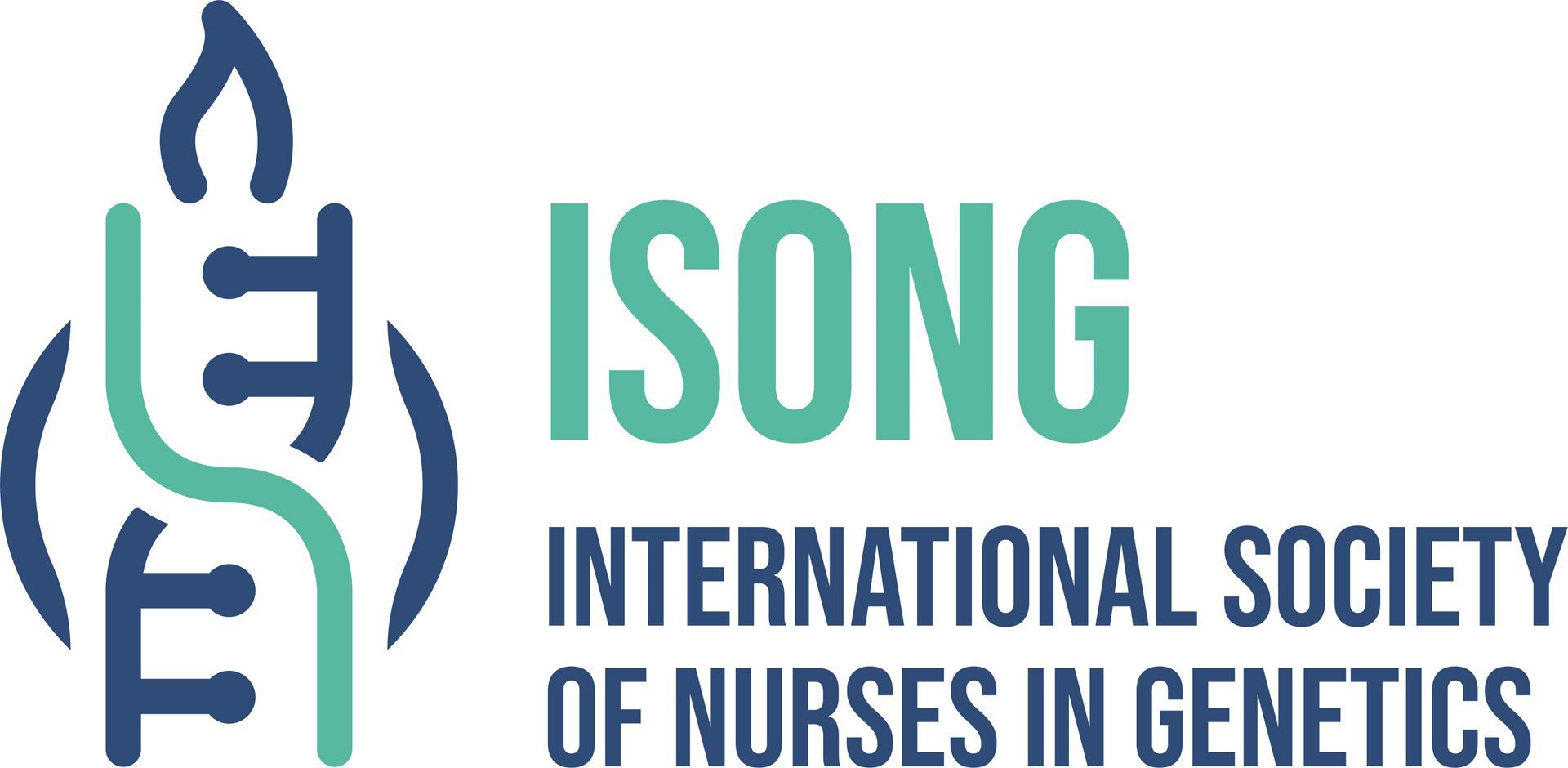
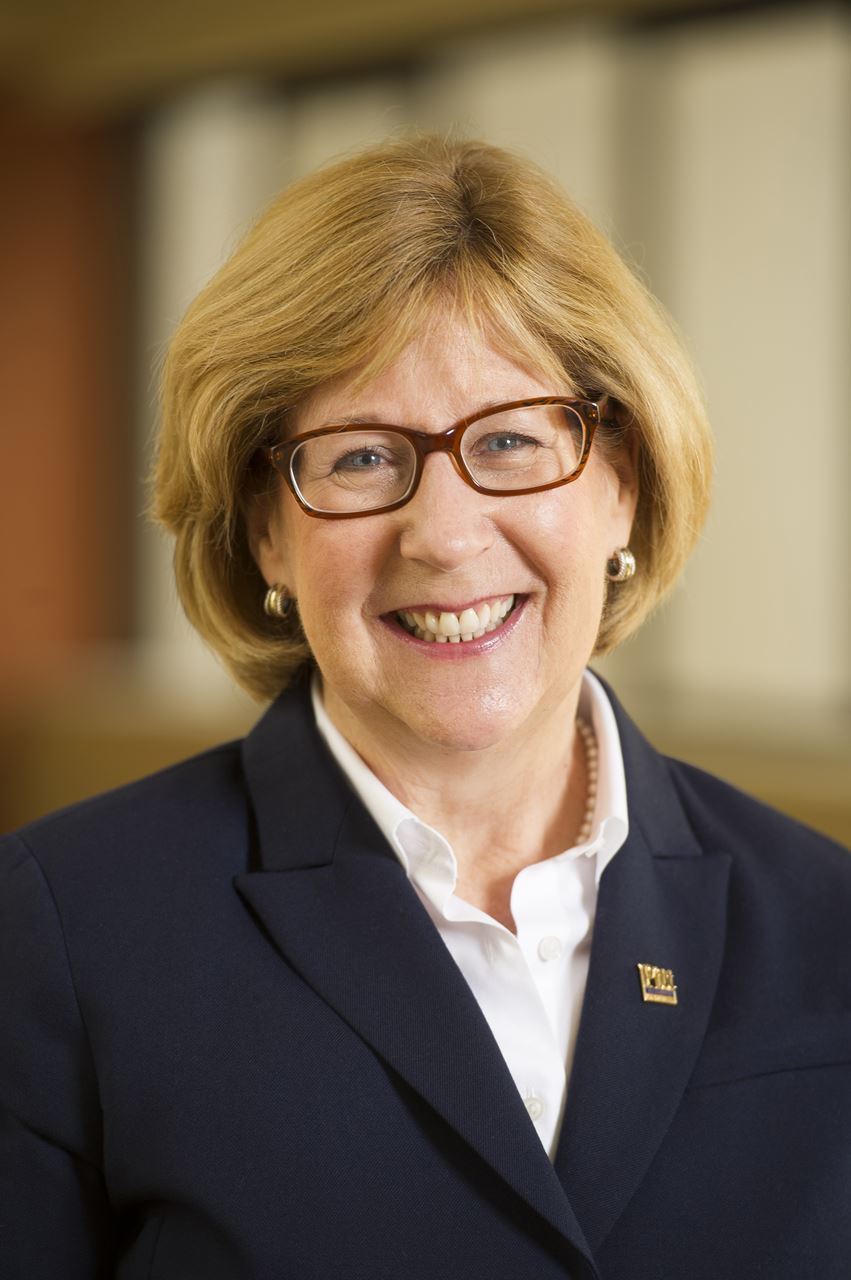
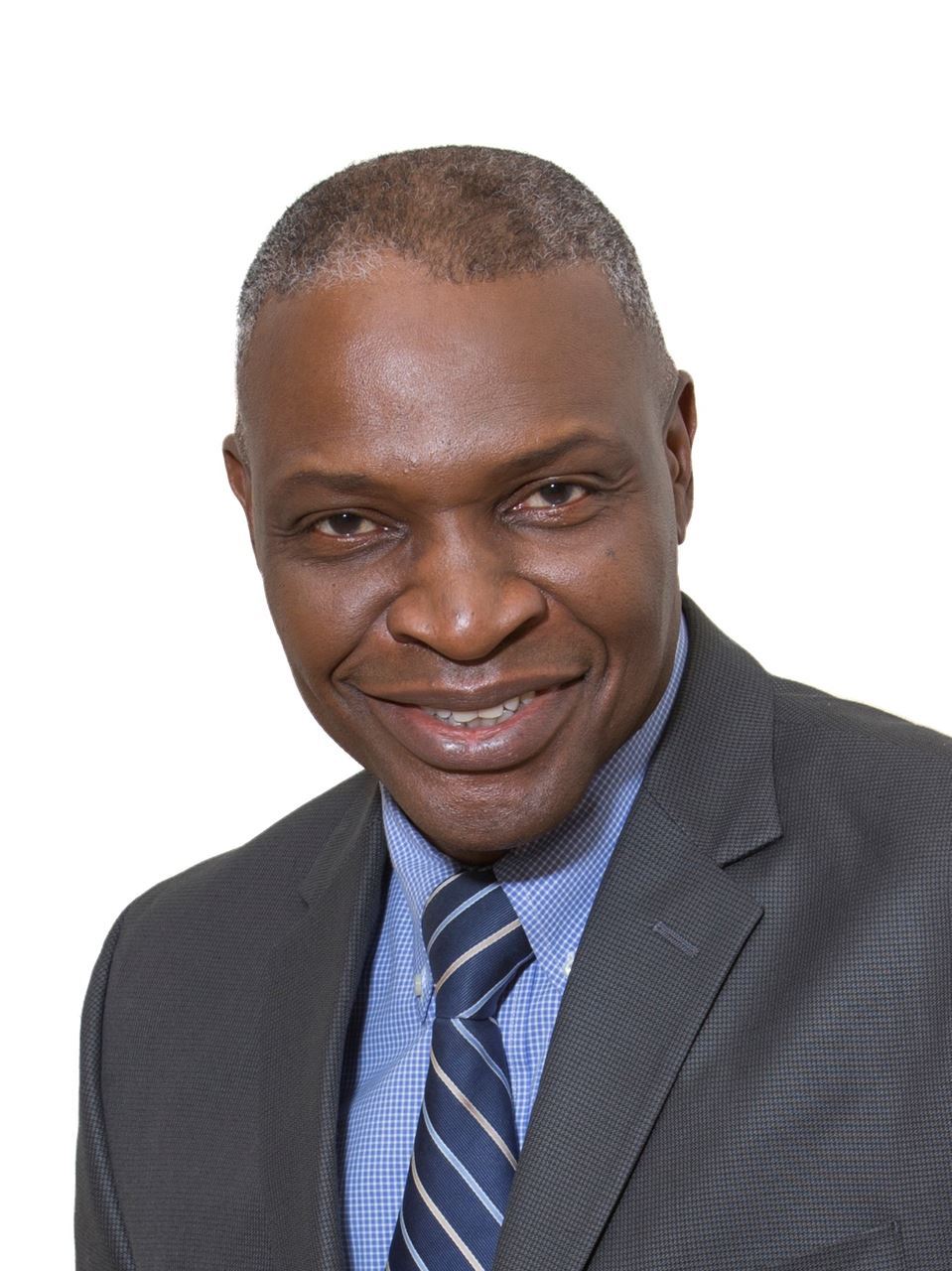
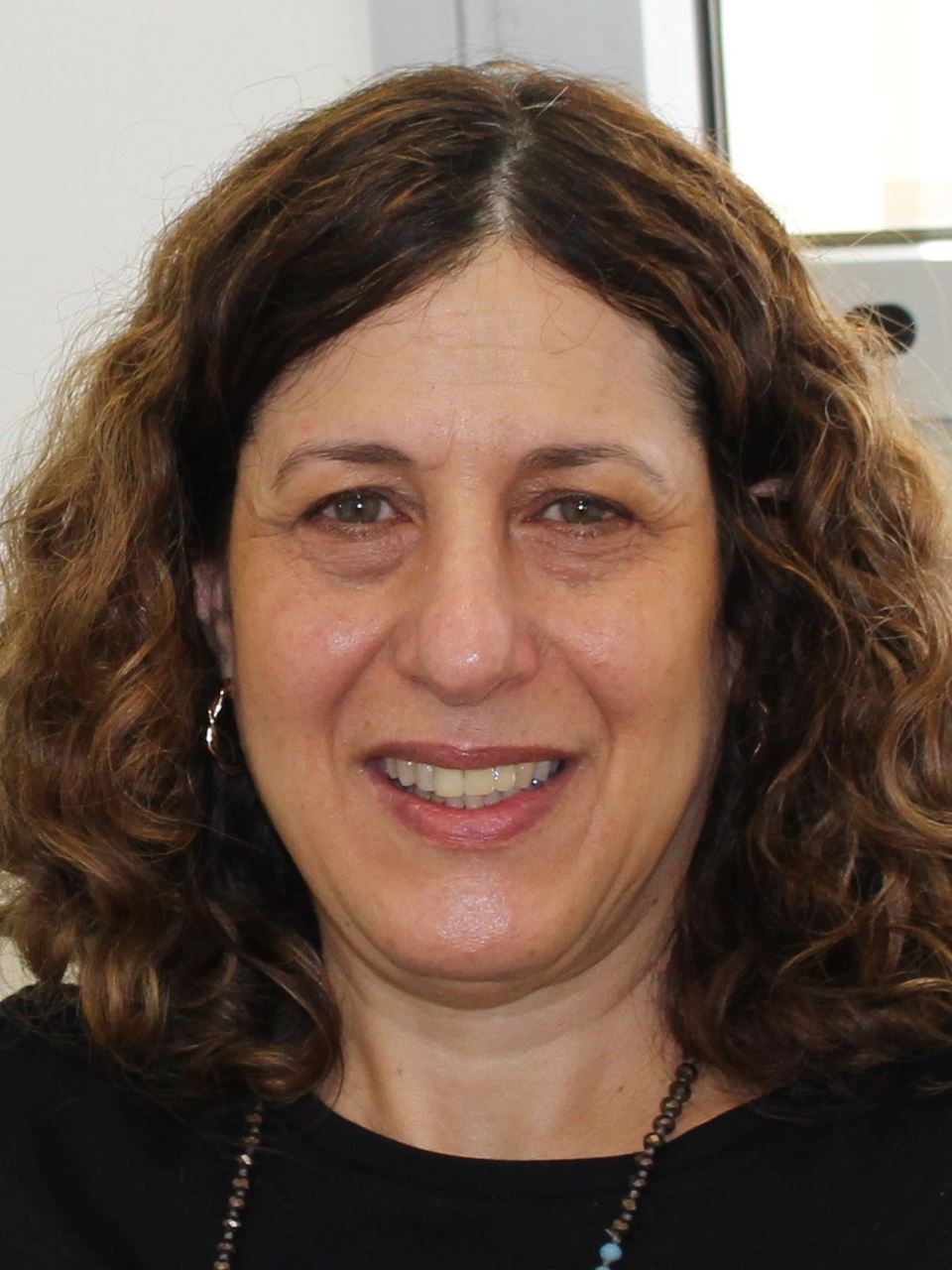
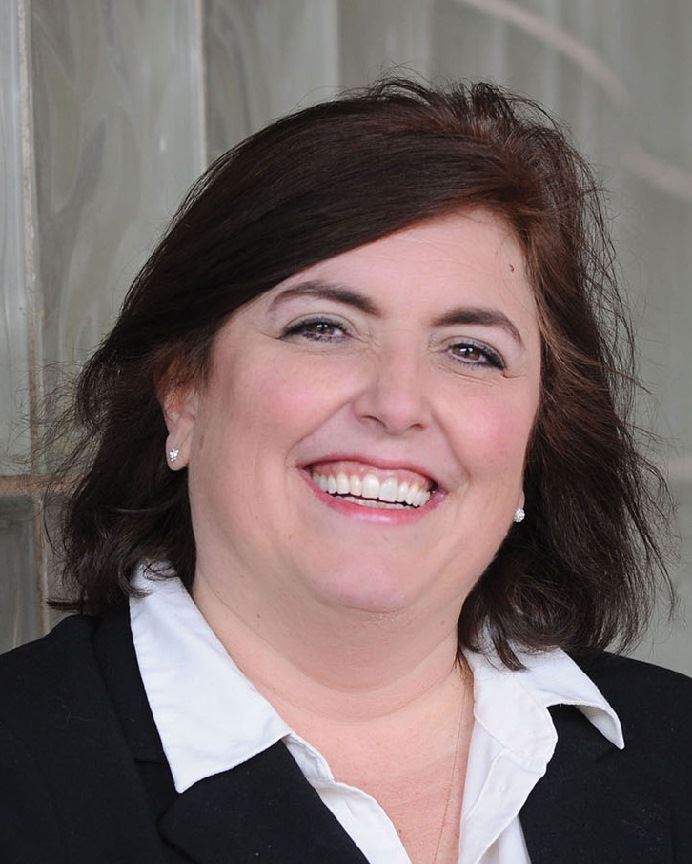
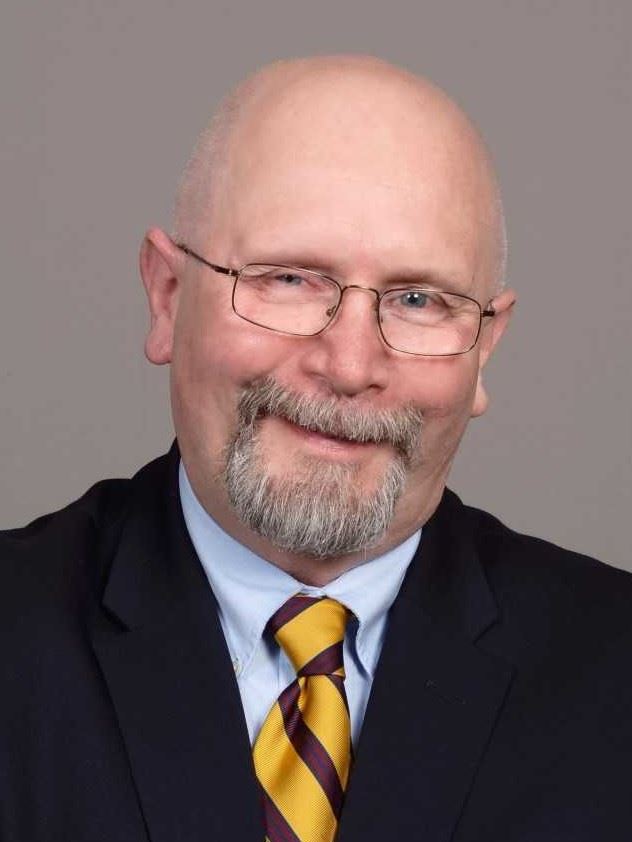 Mike Groves
Mike Groves 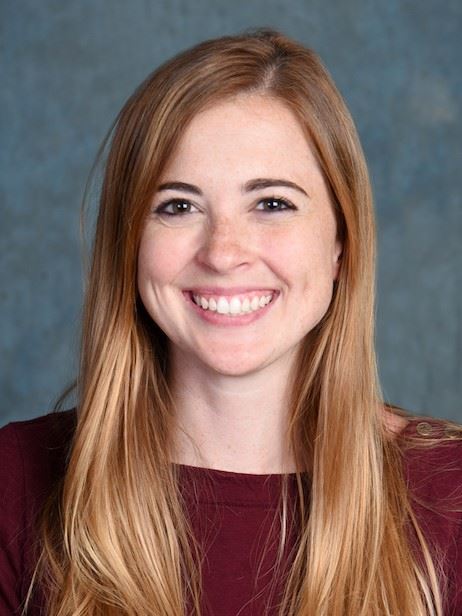 Congratulations to Katherine Maki
Congratulations to Katherine Maki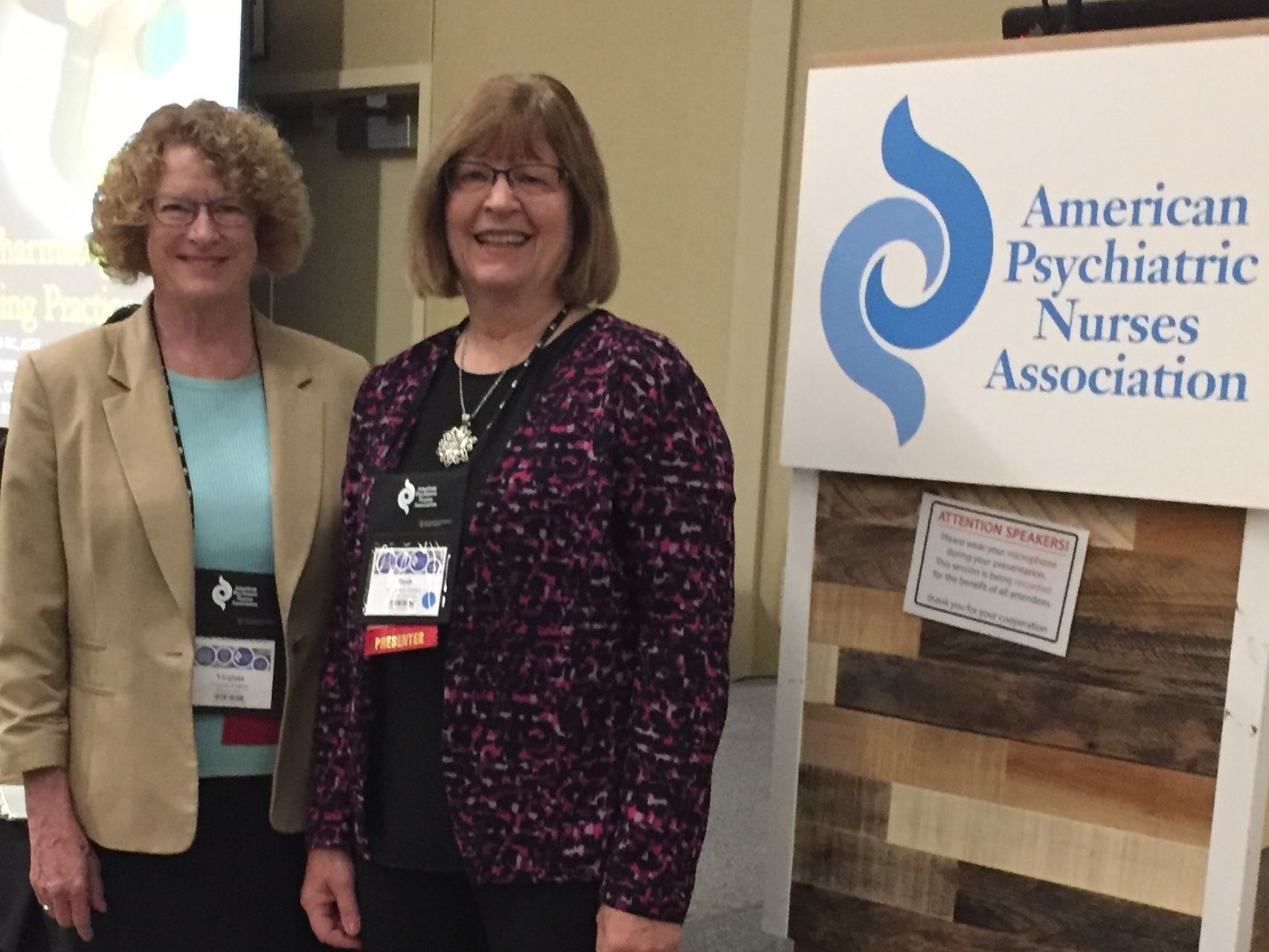 ISONG/ASHG Collaborative Educational Initiative by Virginia Conley, Beth Pestka, and Nicole Osier
ISONG/ASHG Collaborative Educational Initiative by Virginia Conley, Beth Pestka, and Nicole Osier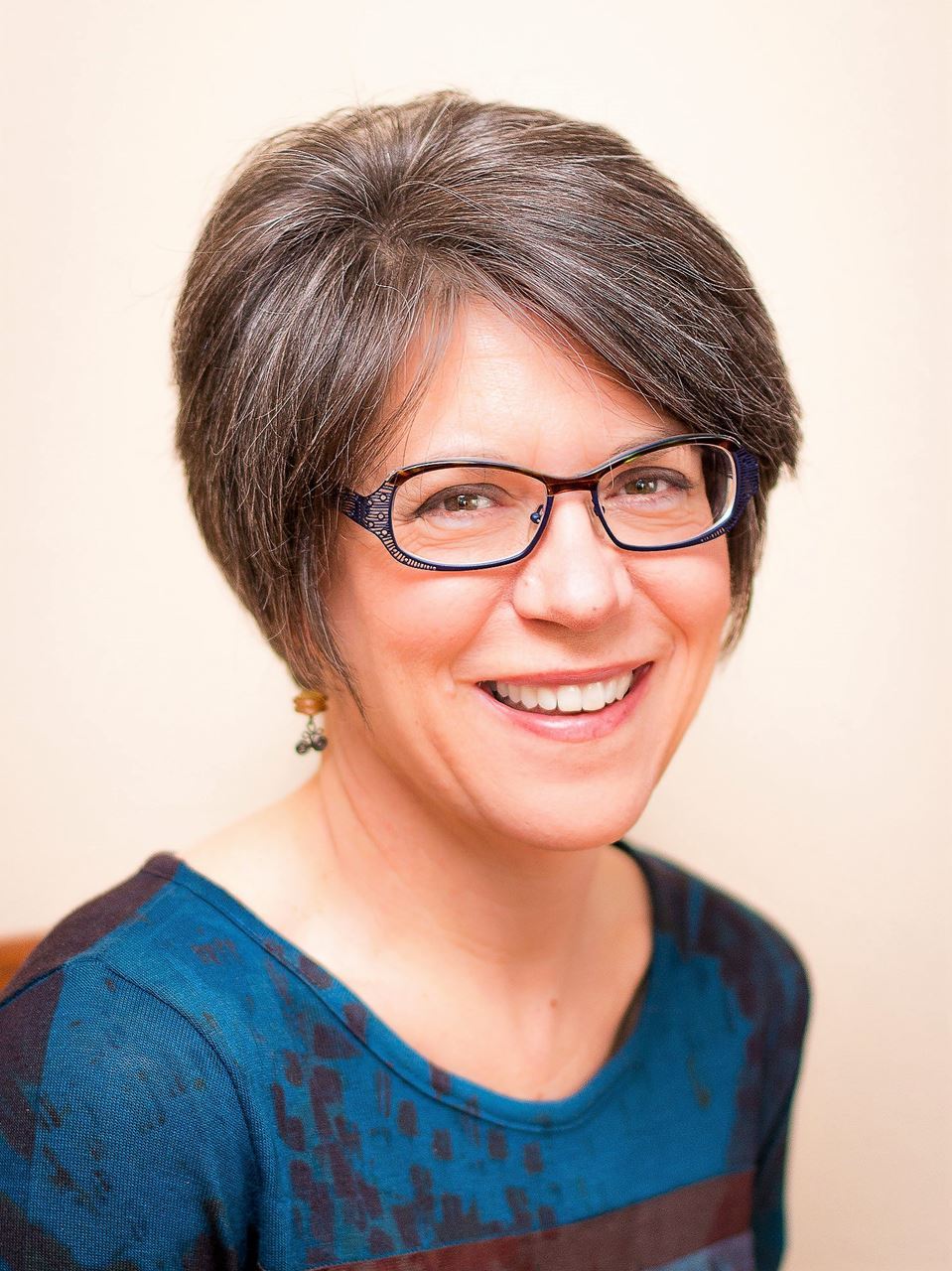 Sandra Daack-Hirsch, PhD, RN
Sandra Daack-Hirsch, PhD, RN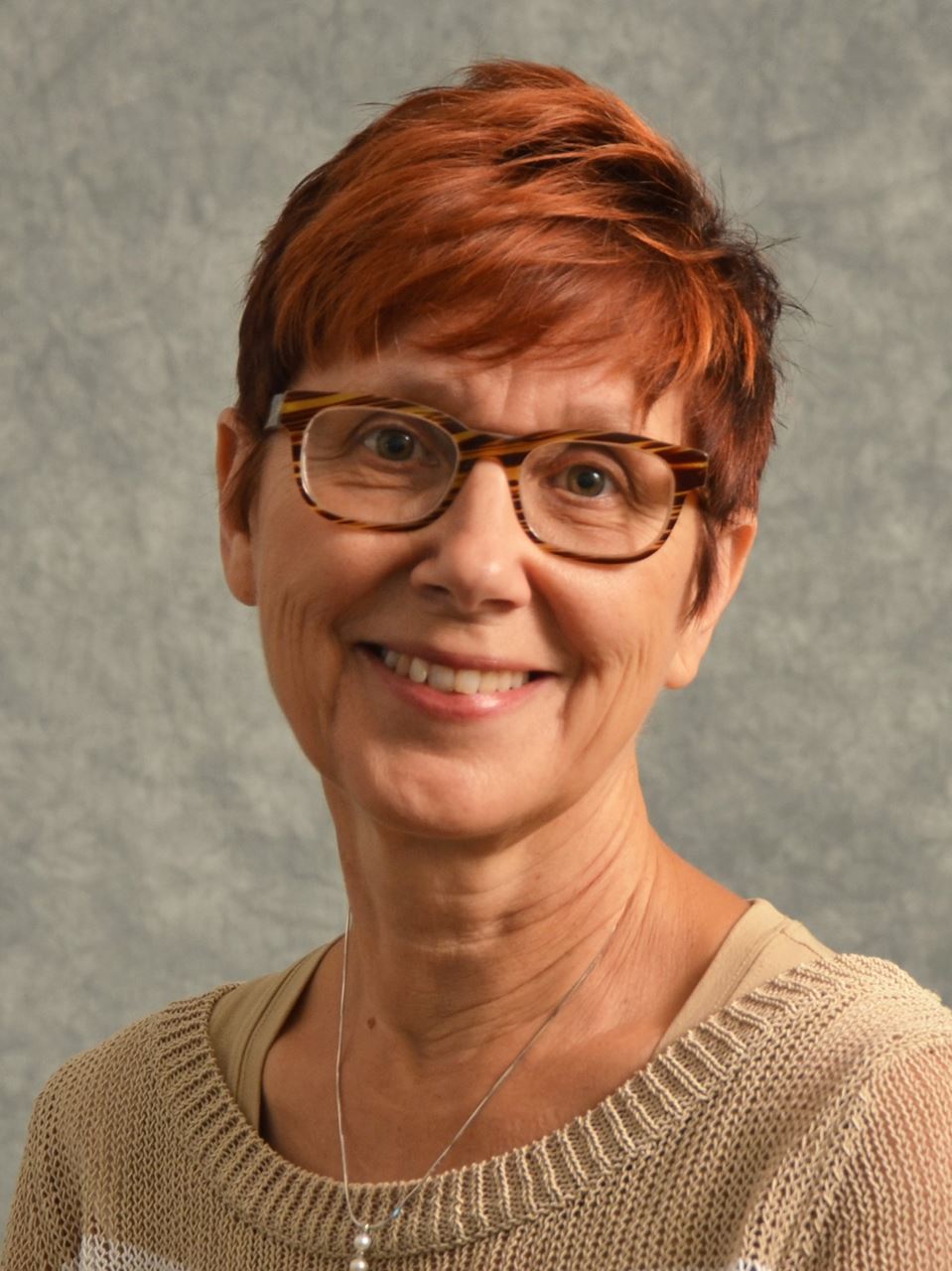 Becky Kronk, PhD, MSN, CRNP
Becky Kronk, PhD, MSN, CRNP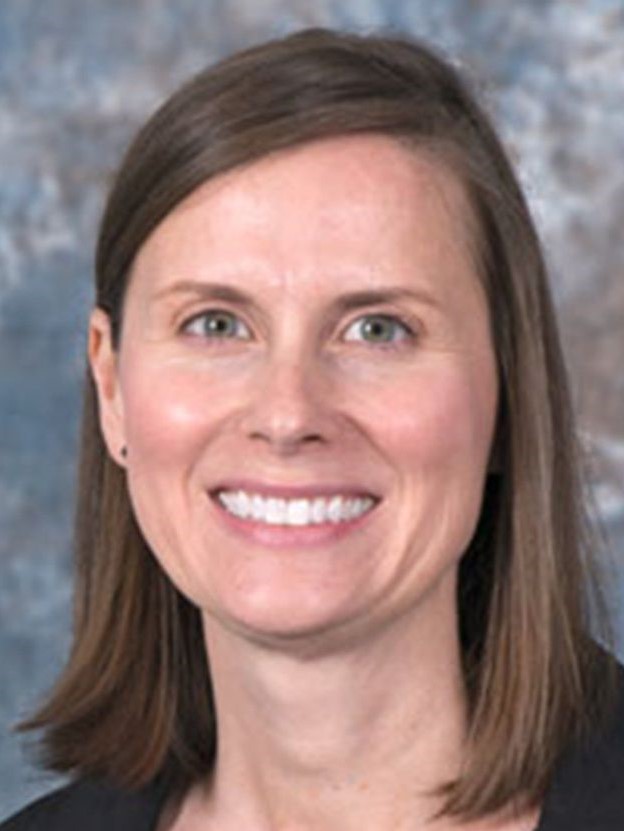 Jennifer Sanner Beauchamp, PhD, RN
Jennifer Sanner Beauchamp, PhD, RN
